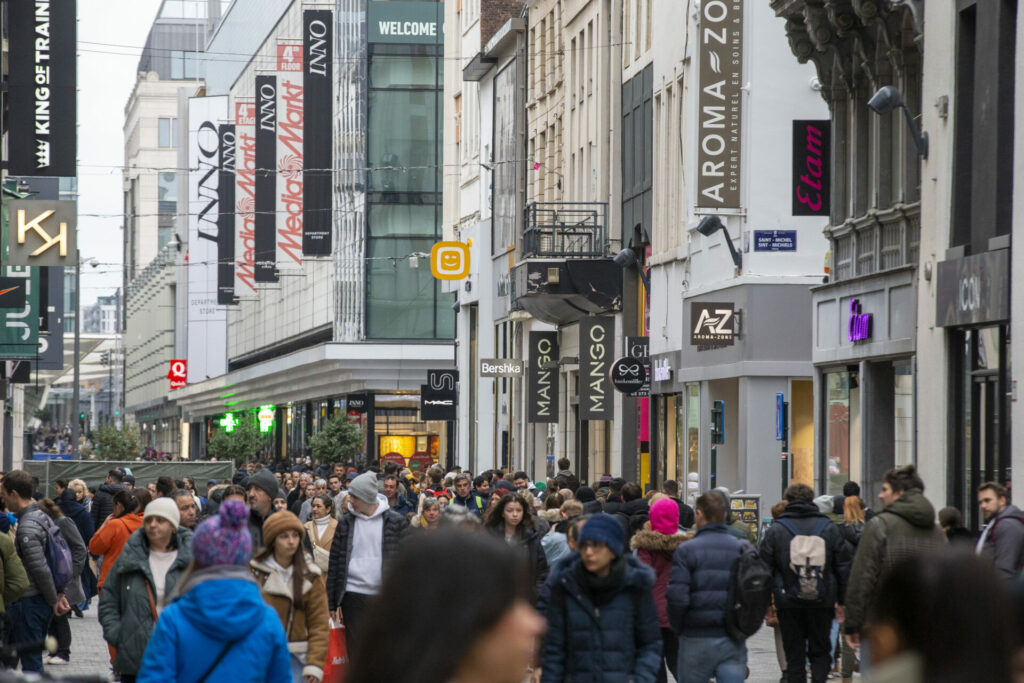In recognition of the high demand for affordable housing in Brussels, developers are looking to vacant properties – including those above stores in the city centre. On the prominent shopping street Rue Neuve, this has led to a total of 270 homes added in the last decade.
The number of vacant properties above shops in the city centre has grown historically. In the past, shop traders owned the entire property and lived above their shops themselves, meaning many shop fronts don't have a separate entrance to the floors above.
However, as a result of the North-South rail connection created in the 1950s, many traders, like other residents, left the city centre. Later, the industry itself also evolved from independent stores selling craft products to multinational brands selling standardised products. The number of traders living above shops fell and the spaces became used as offices or served a storage function.
Until a few years ago, this was also the case on the city's most popular shopping street, Rue Neuve. However, as part of the City of Brussels' efforts to combat vacancy above shops and convert empty floors into housing, it has created 270 new homes over the past ten years in the centre of the capital, Ans Persoons, councillor for urban planning, said on Friday.
"We cannot afford to leave these floors empty: our population is growing and affordable housing is a major challenge for more and more people," she said.
Guiding owners to create a more liveable city
The City charges taxes on empty, abandoned or neglected buildings to encourage owners to be efficient with space. But empty floors above shops are usually the result of a lack of financial resources and know-how, Persoons explained. This prevents owners or operators from carrying out works.
For this reason, Brussels City also grants an annual premium of up to €15,000 per application to store owners who create a separate entrance next to their shop premises: a necessary step to making the upper floors habitable.
"Thanks to the premium, we try to win over hesitant owners and guide them so that their project is also qualitative in terms of architecture and heritage."
Related News
- Avenue Louise tunnels at risk of collapse: Traffic limited until 2027
- Ancienne Belgique: Iconic Brussels venue to get rooftop terrace
Living above these shops also benefits the liveability of commercial districts, Mayor Philippe Close explained, referring to the fact that, in the 1970s and 80s, the street used to be lively both during the day and at night. Rue Neuve is no longer a nightlife destination and is empty after closing hours, giving an increased sense of insecurity.
Adding housing here means there is life at all times of the day. "This will not only improve the housing supply but also increase safety in certain streets that are currently sometimes deserted at night," Close said.

